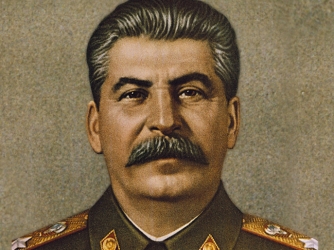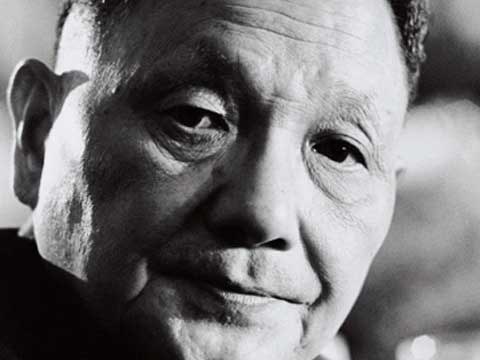FDI doesn't directly boost an economy the size of India
.
.
.
.
FDI can boost the economy of a small PPP GDP country like Malaysia or Singapore. It can make the difference, where exports constitute a high percentage of GDP.
HOWEVER, a country the size of India with a PPP GDP of around $7.5 trillion, then FDI plays little or no part in development ultimately.
What matters is government led initiatives to mobilise the domestic resources of the country through:
1. Efficient taxation.....budget to GDP RATIO is high...40--50 of GDP, and that a high percentage of the budget is allocated to DEVELOPMENT, especially INDUSTRY and INFRASTRUCTURE. Stalin's Soviet Union, and the crash course industrialization program of 1928-1941.....where the Soviet economy went from 18% to 45% value of the equivalent USA economy. FDR's New Deal in the USA...1933--45. China under Deng Xiaoping.
2. The wholesale abolition of archaic labour laws.
3. Reform of land laws which automatically favor development over small farmer rights.(Soviet Union, Communist China, The USA....cattle ranchers and small holders against the great railway companies).....no NGO bullshit about small farmer rights. It never existed in the UK during the first modern Industrial revolution 1750--1850....etc and so on.
4. Special tax exemption for business.
5 Special Economic zones.
6. Destroying ALL bureaucratic hurdles in the ease of doing business.
7. Fighting local economic mafia's.....sand mafia, coal mafia's etc
8. Private and government investment opportunities which clearly benefit private investors over ultimate government profit.
China will re-invest anything between $6-8 trillion this year alone back into her economy. FDI represents only about 2% of total Chinese investment inside China.
Of course that is not to say that FDI doesn't have some utility, it does. Through FDI you can import technology that the country simply does not have.
For India to jump from a $7.5 trillion economy to a $50 trillion economy by 2050 MEANS massive mobilization of domestic resources...using the above. It won't happen in any other way.
Modi's foreign trips are an indication of his insecurity, his craving for acceptance and the fact that the Israelis and the USA brought him to power. Two/three trips to the USA just over one year is not good for India, and providing strong independent leadership to the country.
_____________________________________________
India received $20 billion in FDI in 2014-15 from countries that PM Narendra Modi visited
Dipanjan Roy Chaudhury,ET Bureau
and Times of India When
the PM travels to the US this week to woo businesses there, one of the
key facts that the government will be tomtoming about is the surge in
foreign direct investment since Narendra Modi took over and how his
personal touch has helped.

India received $20 billion (Rs
1.3 lakh crore) in FDI in 2014-15 from a dozen major FDI source
countries that Modi has visited since taking over in May last year. This
accounts for nearly two-thirds of the $30.93 billion FDI the country
received in the fiscal year, which was 27 per cent more than the year
before.
 FDI grew quicker after the launch of the Make in India
programme in September 2014 — inflows jumped 48 per cent between October
2014 and April 2015 over the year-earlier period, data from the
Department of Industrial Policy and Planning showed.
FDI grew quicker after the launch of the Make in India
programme in September 2014 — inflows jumped 48 per cent between October
2014 and April 2015 over the year-earlier period, data from the
Department of Industrial Policy and Planning showed.

Modi will
be reaching New York on Wednesday evening and is scheduled to meet top
business honchos. The visit is coming at a time when cynicism is growing
about the government's ability to introduce and implement reforms as
promised.

"There has been some questions about the Modi
government's performance when it comes to pace of reforms and ease of
doing business," a foreign diplomat in Delhi said. But a government
official from Japan, one of the countries that Modi visited and from
where he got a huge investment commitment, told ET there was no major
reason to be upset about since Modi became the PM.
While some
criticise his frequent foreign visits, others say those trips have
helped boost India's image as an investment destination. "Foreign firms
had switched off India in the last couple of years (of the previous
government) but they have been upbeat in the past year," said ex-CII
mentor Tarun Das.
"Modi has been able to integrate foreign
policy with economic and corporate policies. India is emerging as the
apple of everybody's eye as other BRICS economies are witnessing
downslide," he told ET. "A big change has been brought in the approach
towards foreign investors by the PM deciding to meet individual CEOs of
global business giants. When domestic investments are constrained and
Indian banks have huge NPAs, FDI is key to boosting economy." A concern
that Das has is on the tax regime, which he said needs to be simplified
for securing more FDI.
Among the countries that Modi visited,
Japan has committed to invest about $35 billion in five years and South
Korea about $10 billion. China has assured $20 billion in the next five
years, while France has announced $2 billion euros ($2.26 billion). The
UAE, which the PM visited last month, has assured to pump in money for
India's $75-billion infrastructure fund. The UK has launched a programme
for investments here ahead of Modi's planned trip in November and
Germany is expected to make some announcements related to the Make in
India initiative during Chancellor Angela Merkel's visit to New Delhi in
the first week of October.



